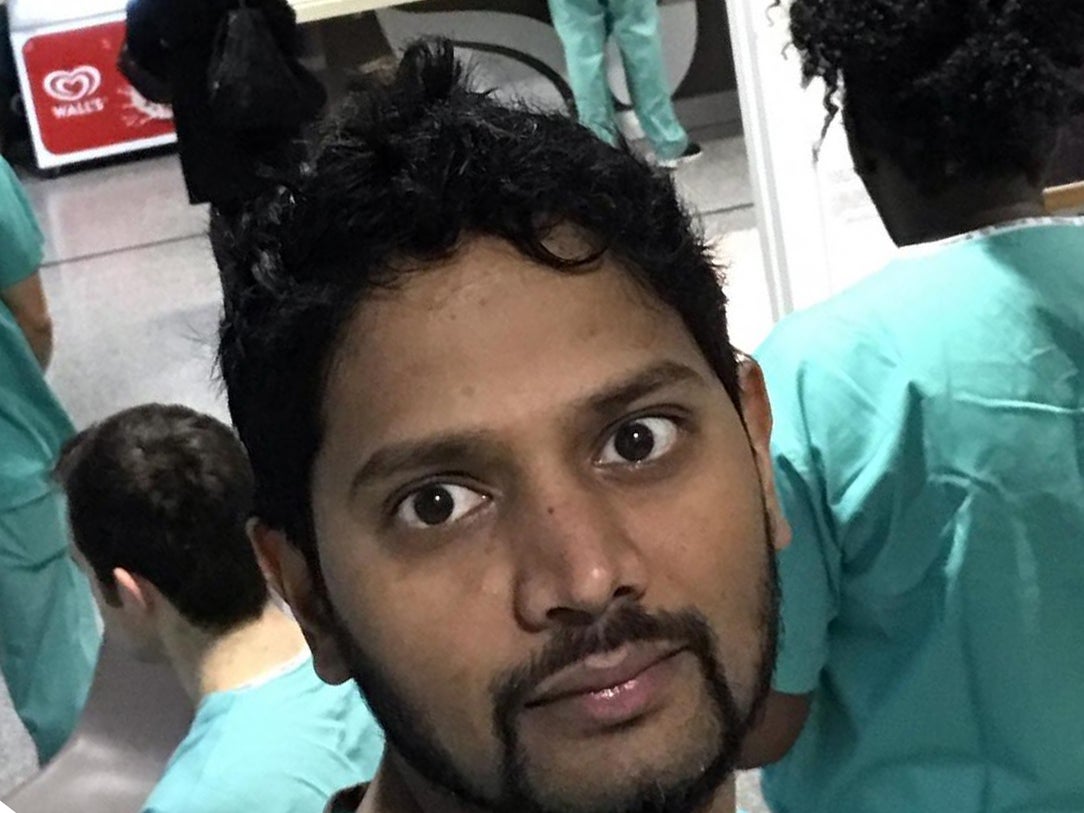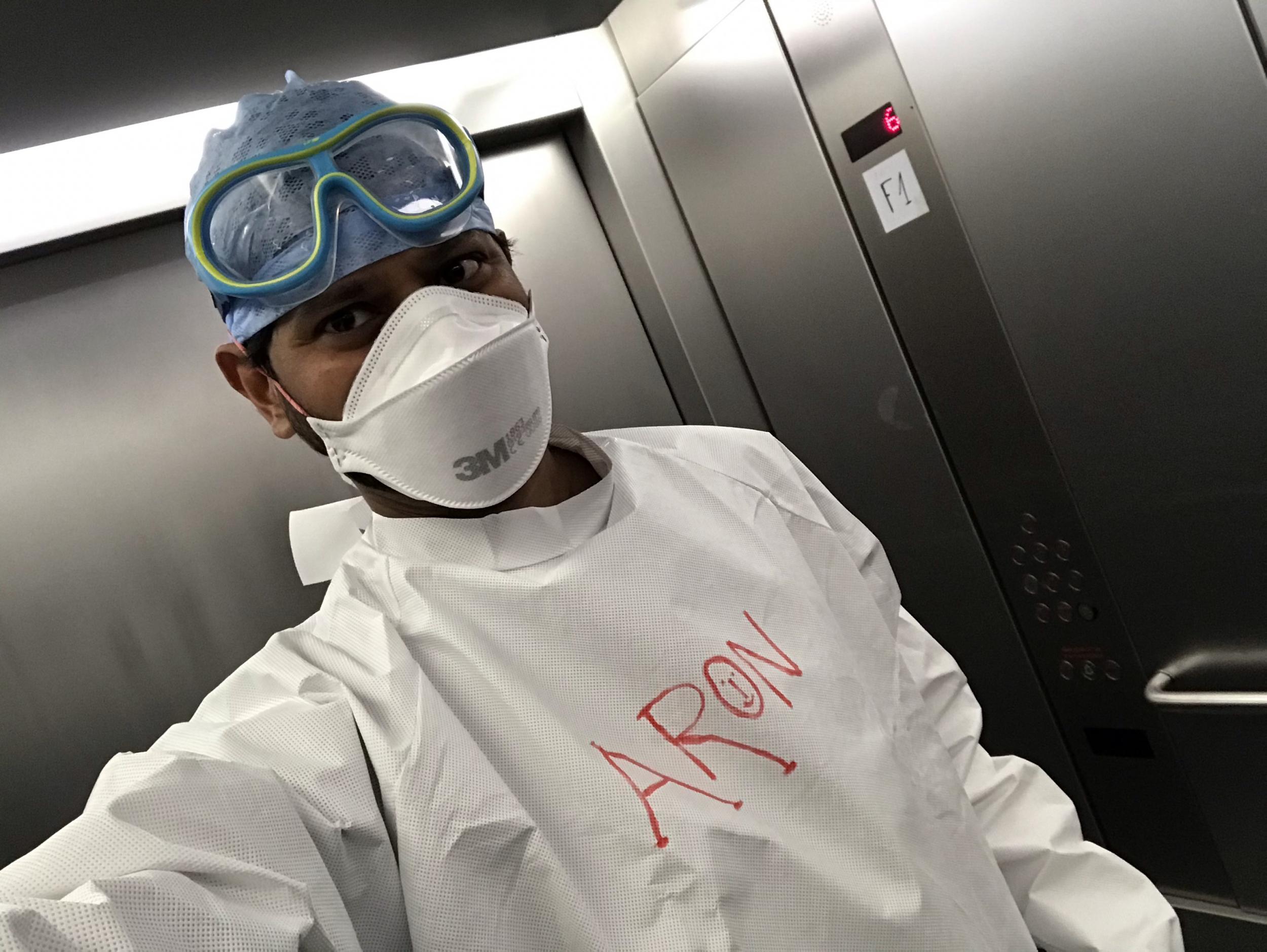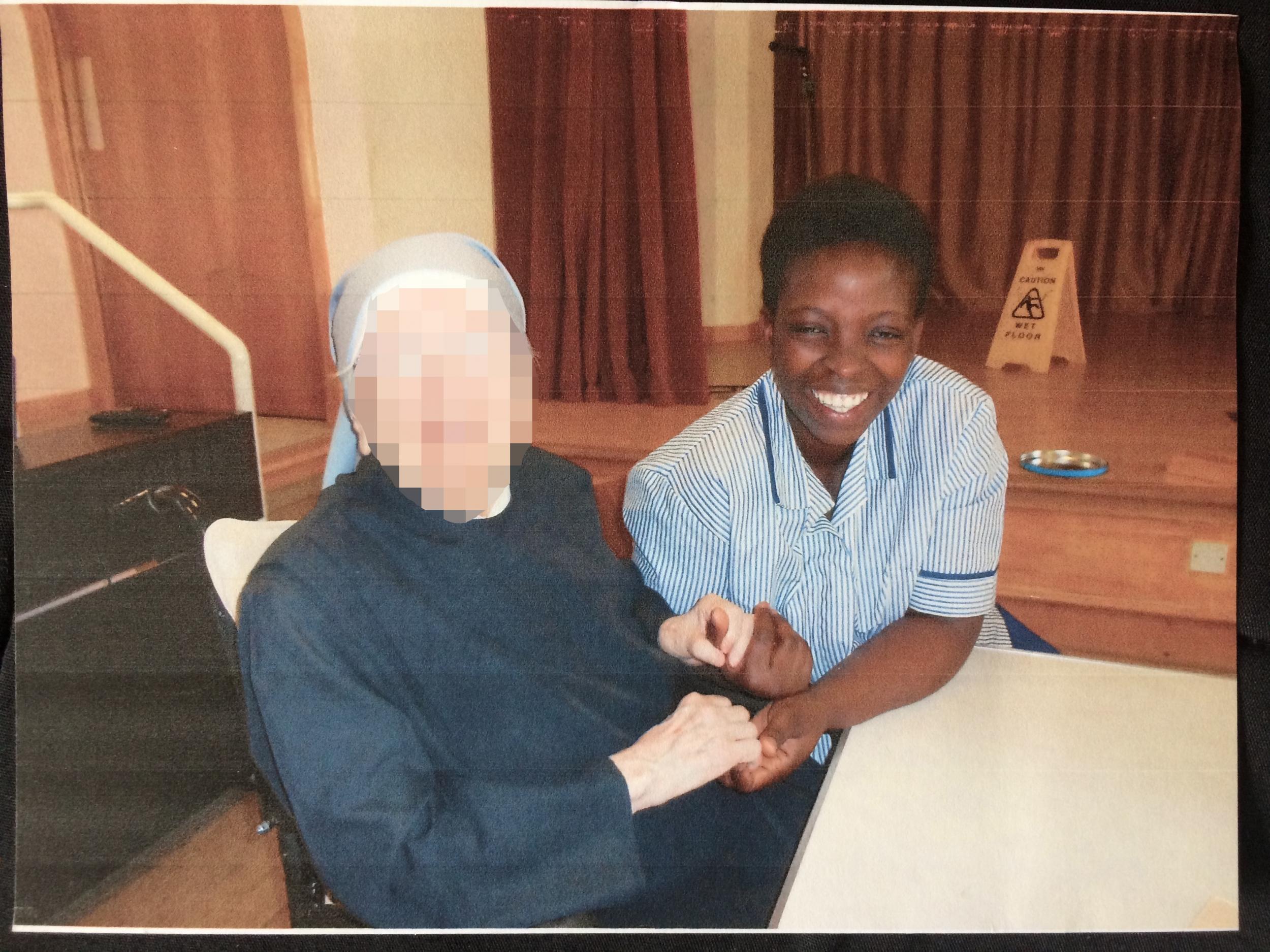‘What about my wife and child?’: The migrant health workers risking their lives yet excluded from visa extension scheme
‘If Matt Hancock says care workers need to be given a green badge so they are recognised in the same way as frontline NHS workers, why is the immigration system dividing us?’

Your support helps us to tell the story
From reproductive rights to climate change to Big Tech, The Independent is on the ground when the story is developing. Whether it's investigating the financials of Elon Musk's pro-Trump PAC or producing our latest documentary, 'The A Word', which shines a light on the American women fighting for reproductive rights, we know how important it is to parse out the facts from the messaging.
At such a critical moment in US history, we need reporters on the ground. Your donation allows us to keep sending journalists to speak to both sides of the story.
The Independent is trusted by Americans across the entire political spectrum. And unlike many other quality news outlets, we choose not to lock Americans out of our reporting and analysis with paywalls. We believe quality journalism should be available to everyone, paid for by those who can afford it.
Your support makes all the difference.“Every four hours you need to roll the Covid patients,” says Arun Panabaka, 37, a nursing assistant working in Barts Hospital in London. “Your back hurts. When one of the patients coughed, he was sick and the vomit went onto my neck and my eye. I was so terrified. I had to go disinfect myself. If I get infected, if I die, what about my wife and child?”
The Indian national has been working on the intensive care unit with coronavirus patients for more than two months. To avoid taking the virus into the hospital and to protect his wife and nine-year-old daughter at their family home in East Ham, east London, he has been living alone in NHS-funded student halls while he tackles the pandemic on the front line.
Arun feels his sacrifice has gone unrecognised and ignored. While his migrant doctor and nurse colleagues have been granted free automatic visa extensions as part of the government’s efforts to show them they are valued, his position as a nursing assistant makes him ineligible. The same is true for hospital porters and cleaners, as well as carers, all of whom are exposed to the virus on a daily basis and working hard to fight it, but whom ministers have decided to exclude from the scheme.
The Home Affairs Select Committee this week published stark criticism of this move, arguing that excluding care workers and lower-paid NHS staff from the visa extension scheme was “unfair”. The report called on the government to address this “discrimination” by expanding the eligibility to include all NHS and social care staff, regardless of job role or pay grade, saying it “cannot be right” that non-UK health and care staff have to worry about their status and residency in the country.

Arun, who has been in his job since moving to the UK last September, and whose immigration status is attached to the student visa of his wife – who is doing a master’s in public health – needs to apply to extend his family’s stay in Britain in less than four months. He does not know how they will afford to pay £1,724 for the application fee, on top of the £34,155 they need to prove they have in the bank as maintenance funds.
“Besides the emotional stress of working in the Covid ward, I have this financial burden,” he says. “I absolutely agree that we are not professionals, but we all spend time with patients in the Covid wards. I feel there’s no equality. We’re all working together.
“They clap every Thursday, but the next day they say you are unskilled and we don’t need you. What they say and what they do in practice just doesn’t match up.”
Another frontline worker excluded from the scheme is Janet Babasola, 40, who works as a carer for a woman with cerebral palsy in Livingstone, Scotland, and is struggling to work out how she will afford visa extensions for her and her family in time for the expiry date in August.

Janet’s husband has been put on furlough from his cleaning job, and is therefore no longer able to work overtime for extra pay, leaving the family – she has three children aged 14, 12 and three – surviving off an income lower than their monthly expenses.
The Nigerian national says her job itself has become more stressful during the pandemic, as she is unable to take her disabled patient outside and has to constantly try to explain why her family cannot visit her.
“It’s more challenging. She gets very frustrated. I try to communicate as well as possible the reasons why she can’t go out so that she understands. She likes hugs and cuddles, but I can’t do that anymore,” she says.
“You’re working so hard but feel completely undervalued. If Matt Hancock says care workers need to be given a green badge so they are recognised in the same way as frontline NHS workers, then why is the immigration system dividing us? We’re all playing our part. We are all on the front line.”
Nana, 45, a full-time NHS nursing assistant in a dementia ward and single mother to two children with British citizenship aged 12 and 17, is also excluded from the policy. The Ghanaian national, who has been in Britain for 22 years, says she has been under “huge pressure” at work since the coronavirus outbreak started, particularly when patients started to test positive.
“At the end of my shift I always go around and tell each patient I’m going home and I’ll be back tomorrow. When I did this, one man was begging me not to go home, saying he didn’t feel well and he didn’t want me to leave him. I sat him down and he was insisting he wasn’t feeling well. He was saying he had heartburn. I was giving him water,” she says.
“He tested positive a few days later. He got taken to a different ward. I was the last person to have contact with him, and at that time we didn’t have PPE.”
Nana had minor symptoms a week later, but she never got a test. She says the stress at work during the pandemic – compounded by the fact that patients cannot see relatives or be taken out of the facility, and often do not understand why – has been heightened by the knowledge that she needs to pay more than £3,000 for a visa extension in September.
“With the lockdown my children aren’t in school so I’m having to spend more on food now. With the same amount of money coming in, how am I going to save that much?
“It’s adding more stress onto me. I’ve got other financial problems. To pay for my last visa extension I had to get a loan, which I’m still paying back, while I’m saving up to pay for the new visa, just so that I can continue working. I have to pay all this money to do this work.
“I’m not expecting someone from the government to come and say thank you to me, but having to pay for these visas again and again… It would just be nice to be recognised.”
Labour MP Yvette Cooper, who is chair of the Home Affairs Committee, warned that with most care workers and low-paid NHS support staff still excluded from receiving the free one-year visa extension granted to clinical staff, many could be facing costs of hundreds or thousands of pounds this summer.
“Excluding the care workers who hold dying residents’ hands, the cleaners who scrub the door handles and floors of the Covid wards, or the porters who take patients to intensive care is just wrong,” she added.
“NHS staff and social care workers have been heroes on the front line against Covid-19 and they shouldn’t be having to wrestle with the immigration system or worry about their status or hefty visa renewal fees.
“Our NHS and social care system has relied on the contributions of those who have come from abroad throughout this crisis. Making the lowest paid of those workers pay thousands of pounds during the coronavirus crisis when they are helping and caring for everyone else is unfair and wrong.”
A government spokesperson said: “We are incredibly grateful for all the hard work that health and care workers continue to do in the fight against coronavirus.
“Right across the immigration system, we are supporting NHS and other eligible health and care workers. We have introduced a free one-year visa extension to approximately 3,000 key frontline health workers including an exemption to the immigration health surcharge and have expanded the bereavement scheme to all NHS and social care workers.”
Join our commenting forum
Join thought-provoking conversations, follow other Independent readers and see their replies
Comments